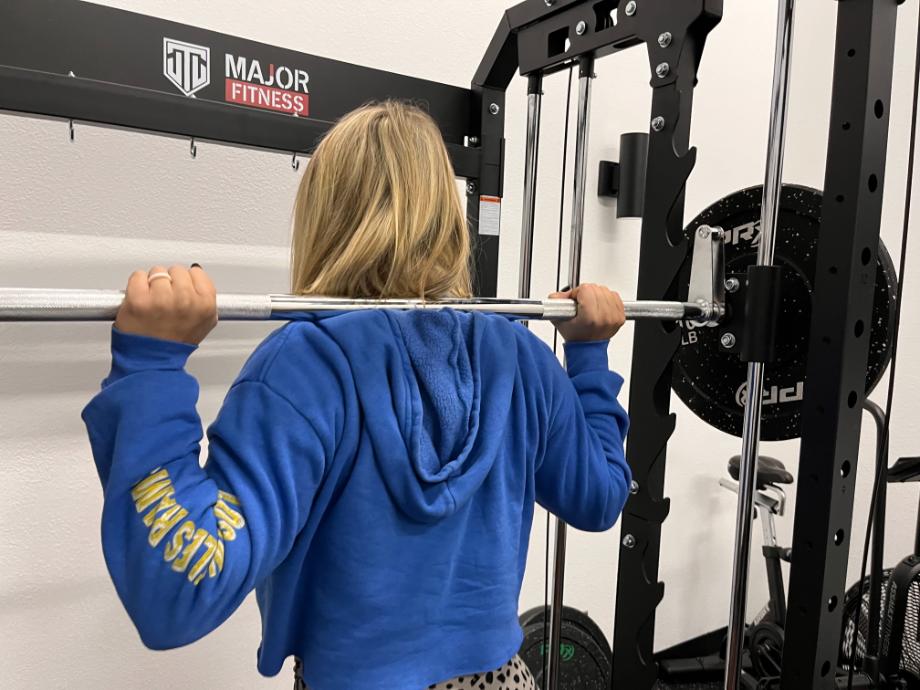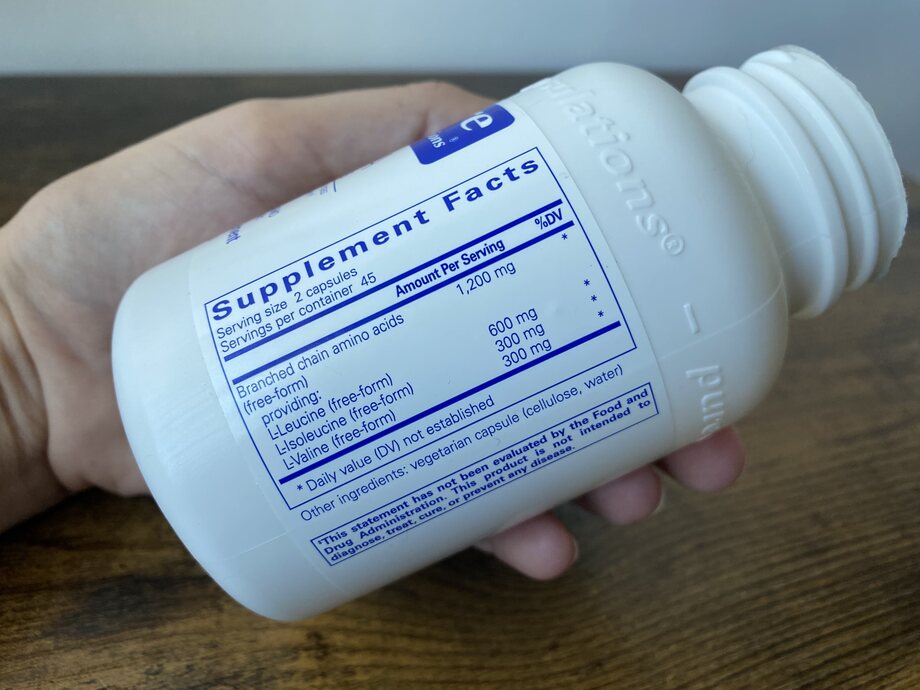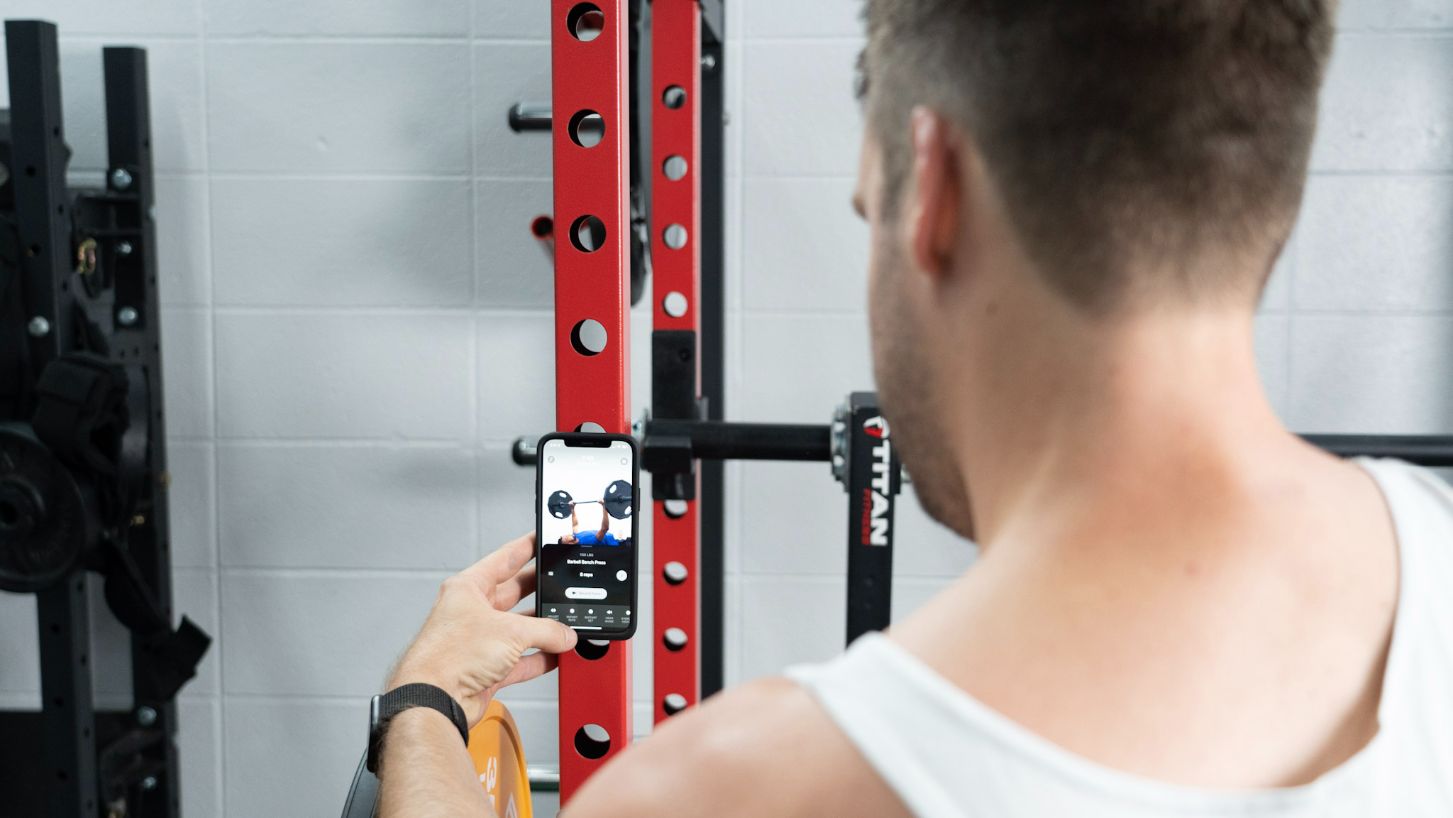We test and review fitness products based on an independent, multi-point methodology. If you use our links to purchase something, we may earn a commission. Read our disclosures.
Social media and all of its positives and negatives have become a staple of our daily lives. Along with suggestions on the latest fashion fads and online workout programs, social media and fitness influencers are giving their followers the latest trends, hashtags, and fitness tips on health and wellness, through your daily dose of fitness social media content on a variety of platforms.
With its ever-growing presence in our daily lives, how does social media influence our nutrition and fitness goals? To answer this, we surveyed over 2,000 people of various age groups, fitness levels, and backgrounds to discover the impact of social media on fitness. In addition, we talked to GGR expert panelist Destini Moody, RD, LD, CSSD, to get her insights on social media’s influence on our perception of the supplement and fitness industry.
Key Findings
From our survey of over 2,000 people—from various age groups and fitness levels—here are the main takeaways we discovered regarding fitness and social media:
- As many as 1 in 3 people have tried a fitness or nutrition “hack” they found on social media.
- Out of those who tried fitness hacks, 90% of those surveyed were satisfied with the results, but Gen Z had the highest regret rate (15%).
- About 64% of people research supplements before purchasing, yet only 3% consult certified health and fitness professionals beforehand.
- YouTube is the most popular online platform for fitness advice, used by 30% of respondents; this percentage surpasses Instagram and TikTok combined.
Fitness and Nutrition Hacks: The Influence of Social Media
Along their fitness journeys, people seek out research, engaging content, and social media posts to help with different goals—be it weight loss, healthy eating, or building muscle. Social media platforms like TikTok and Instagram not only influence what people buy, but also what fitness businesses and nutrition trends they may follow. Experts on social media pages can present high-quality, valuable content—and not-so-valuable content—via fitness “hacks” and fitness tutorials.
Who’s Trying Social Media Fitness Hacks?
In our survey, we asked people with varying fitness backgrounds and workout routines if they tried fitness hacks found on social media. Here’s what we discovered:
- About 1 out of 3 people have tried a fitness or nutrition hack that they originally found on social media.
- Gen Z leads the charge of trying out these fitness hacks, with 44% trying these trends.
- Gen Z is followed next by Millennials (37%), then Gen X (30%), and finally Baby Boomers (14%).
- Women are more likely to try a hack than men, with 39% of women having tried a hack, compared to 26% of men.
While one-third of people surveyed trying a fitness hack is still a large number, the majority of people still seem to avoid fitness hacks given through social media. This can be largely due to the overwhelming amount of contradictory information presented on social media, which ends up going to the same target audience thanks to the platforms’ algorithms.

Destini Moody, RD, LD, CSSD, explains, “In my practice, an overwhelming number of people tell me the information on social media has confused them in some way, either because it’s conflicting or it downright makes no sense.”
This can make some people skeptical or even refuse to make changes to their lifestyle. Destini continues, “This overload on social media can result in some people throwing their hands up and not bothering to try to improve their nutrition and fitness in the first place, all because they just don’t know which direction to go in.”
Satisfaction and Regret: Are Social Media Fitness Hacks Worth It?
Social media marketing makes fitness hacks quite appetizing. Still, while social media fitness hacks are popular, not everyone is happy with the results. Even more telling is that there’s a significant divide in satisfaction across different demographics.
Satisfaction Rates Across Generations
Looking at the differences in those surveyed, we were able to see how age and generation impact our perception of social media hacks, and our satisfaction with them:
- In total, about 90% of people were satisfied with the fitness or nutrition hack they tried.
- Nevertheless, some people had regrets. In particular, Gen Z showed the most regret, with 15% of participants showing regret in trying out the fitness hack.
- On the other hand, Baby Boomers are the most satisfied, with 96% reporting no regrets.
Gender Differences in Regret
Out of the over 2,000 people surveyed, we also noticed a difference in regret and satisfaction in genders, with 13% of women regretting trying a hack from social media and only 6% of men feeling similarly.
Despite the level of well-being in these gym social media posts and hacks, many people are still skeptical of them. This may be one reason people can be regretful of trying a “hack,” even if it’s backed by research or a licensed professional. “Many people who come to my practice in person equate supplements to processed food,” says registered dietitian Destini Moody. “It’s common for people to take them, but many supplements aren’t actually good for you.”

“As a dietitian, I’ll always recommend getting nutrients from whole foods rather than supplements,” Destini continues. “Still, I do think there is a place for supplements to help fill gaps in one’s diet.” She gives a couple of examples, such as omega-3s that may be difficult to fit into a vegan diet without supplementation.
Additionally, an alarming number of people are deficient in vitamin D, and there are few dietary sources of the vitamin. A supplement could be helpful in adding to a healthy lifestyle in these cases.
How People Research Supplements
To better understand how digital marketing and social media impact our buying decisions, we asked people in our survey how they go about purchasing supplements. Before making a purchasing decision on supplements like protein powder, pre-workout, or creatine, many turn to online sources like social media and fitness apps, but surprisingly few have consultations with health professionals.
Where People Get Their Supplement Information
According to our survey, here’s how people get information about various supplements:
- About 36% of people don't research supplements at all before buying them.
- The other 64% of people do some research, with 31% using online sources and 11% using YouTube.
- About 6% use TikTok to research supplements.
- Only 3% of those surveyed actually consult certified health and fitness professionals.
This data suggests a heavy reliance on social media and other online sources, leaving certified professionals out of the decision-making process (although some educational content online often comes from certified professionals).
We asked Destini Moody, RD, LD, CSSD, the most important factors to consider when choosing a supplement. Her biggest concerns are:
- Evidence
- Dosage
- Third-party testing
“Evidence is the largest concern for me,” says Destini, “because you want to be sure that what you’re taking actually works in the first place.” Dosage is similar, as you should be sure that the amount of the supplement you’re taking is high enough to be effective.
“It’s common for a supplement to contain the ingredient you’re looking for,” Destini adds, “but companies bank on people having no idea how much they actually need, so they may underdose servings to cut costs.”
Many supplements undergo third-party testing to ensure their safety—vital for drug-tested athletes who are avoiding banned substances.

It’s vital to research the supplements you're using to make sure you’re getting your money’s worth. Talking to a certified nutritionist or dietitian—instead of listening to social media testimonials—can make this process easier.
YouTube Leads as the Top Source for Fitness Advice
When it comes to finding fitness advice, people are turning to digital platforms more than ever, with YouTube emerging as the top choice and social media presence for fitness advice.
Where People Get Their Fitness Advice
Here’s the breakdown of where people get their fitness advice from:
- First is YouTube, with 30% of people using the video app as their primary source for fitness advice.
- About 23% of those surveyed use the internet (outside of social media).
- TikTok is used by 10% of people, while Instagram accounts for 6%.
- Friends and family are sources for 17% of people in our survey.
- Certified professionals—like coaches, personal trainers, and instructors—are consulted by only 7% of respondents.
YouTube’s dominance suggests a strong shift toward video-based content over more traditional methods like personal trainers or certified professionals.
This shift to social media and video instead of licensed health professionals does pose some risks, according to registered dietitian Destini Moody. The main one is the marketing strategy behind influencers’ YouTube or Instagram posts. “Social media influencers are looking for engagement and monetization—period,” she says. “If they wanted to actually improve the health of the public and fitness community, they’d be healthcare professionals and not content creators.”
Whether it’s a podcast, reel, or video, it’s important to remember that content creators with an online presence don’t always have your best interests in mind; they’re more concerned about social media engagement. “At the end of the day, practical nutrition information isn’t sexy, nor does it get the views influencers are looking for,” Destini continues. “Unconventional and sometimes shocking information is what gets the most clicks, but it’s also the most dangerous information.”
Conclusion
Whether you’re searching for a new product to add to your supplement stacks, or workout plans to improve your next training session, the internet and social media can be a powerful tool with tons of useful information regarding supplement and fitness brands. Many people are turning to these platforms for information and an added sense of community, as seen from our survey.
However, to get to useful, helpful information, you have to sift through a lot of unhelpful—and in some cases dangerous—information as well. To keep yourself informed, it’s best to balance your social media consumption with input from a real certified health professional to make sure the information you have is correct.
Also, when purchasing supplements, remember to make sure that they:
- Are evidence-based
- Have a proper effective dosage
- Are third-party tested to ensure the purity of the ingredients
Fair Use Statement
If you have any questions about the information mentioned above, or are interested in an interview, please feel free to get in touch with Jonathan Weissberg (jonathan@email.garagegymreviews.com), the Fitness Research Director at Garage Gym Reviews. You are welcome to use any of the findings, data, and graphs from this report, but we do ask that you please provide a link back to our study to cite the original data source.
Fitness Social Media: FAQs
Which social media platform is best for fitness content?
There is a variety of fitness content on every platform. However, in our survey, YouTube was the most used social media platform for finding fitness advice, with 30% of those surveyed having used the app. Being primarily a video app, this also suggests a preference for long-form content in learning about fitness and seeking advice.
What type of content performs best for fitness brands on social media?
With ever-changing algorithms on all platforms, social media strategies are always evolving as well, so the type of content can vary. Most fitness influencers will post about their personal success stories with weight loss or muscle growth (or a combination of the two), or they may show at-home workouts or exercise tutorials. Furthermore, a simple motivational quote may get high engagement.
What are the latest trends in fitness social media content?
Trends constantly change on social media, from the best cold plunge tubs, to supplements like pre-workout and creatine. However, these trends aren’t always the greatest fitness tips to listen to. Make sure to consult a licensed health and fitness professional before adding a new training program or supplement to your regimen.
Further reading

We tested this lightweight, pop-up sauna tent for two weeks straight. Find out all the details in our Serene Life portable sauna review. Read more

Many people are adding red light therapy to their wellness routines, but is it safe? In this article, we’ll review the potential red light therapy dangers. Read more

The public is only vaguely familiar with CoQ10 benefits. A dietitian weighs in on what the science says the antioxidant can actually do for you. Read more

The Armaidis an arm roller that is popular among rock climbers and starting to be used more by people who train. In our testing, it is not only easy to use, but extremely effective. If you deal with tendinitis or other overuse injuries in the forearms, then we highly recommend the device. Read more

